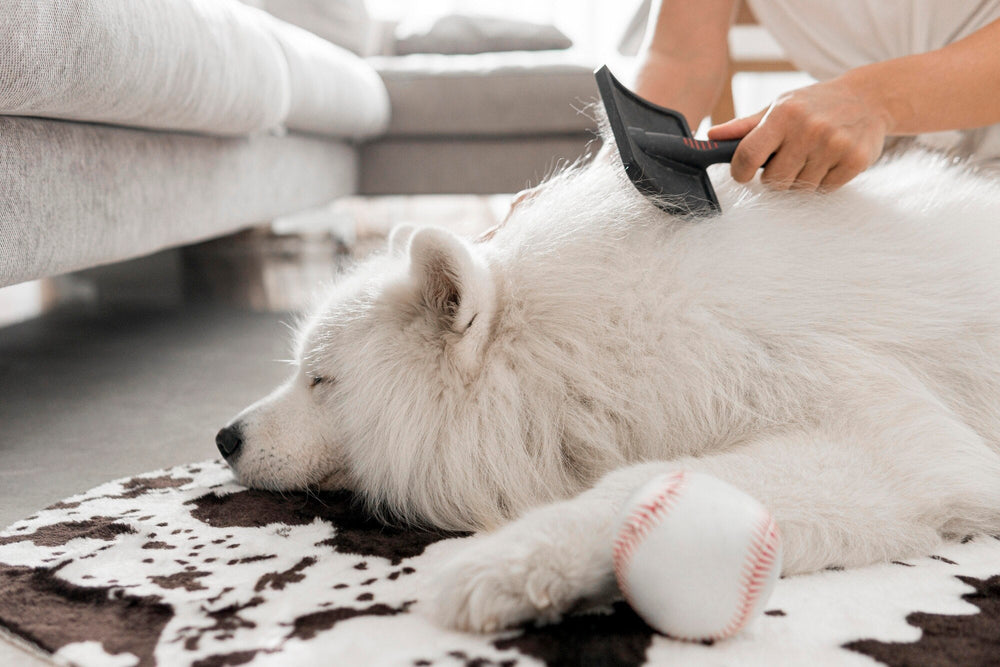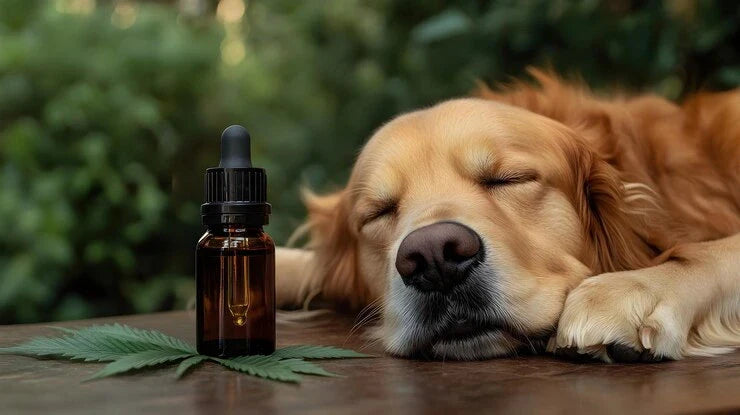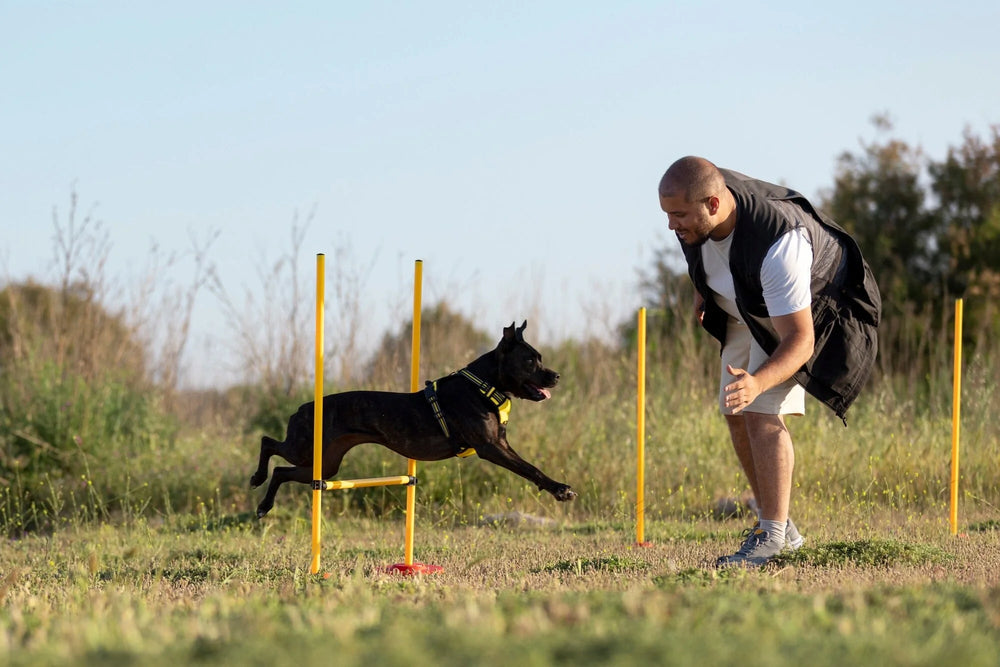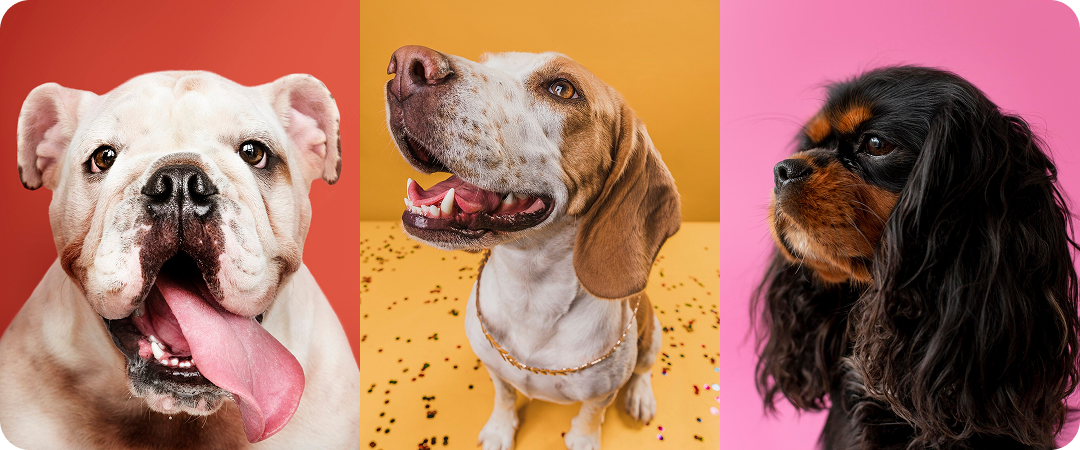Did you know that by the age of three, approximately 80% of dogs show signs of dental disease? This alarming statistic often surprises even the most dedicated pet parents. Dental disease isn't just about bad breath—it's a serious health concern that can significantly impact your dog's quality of life and longevity.
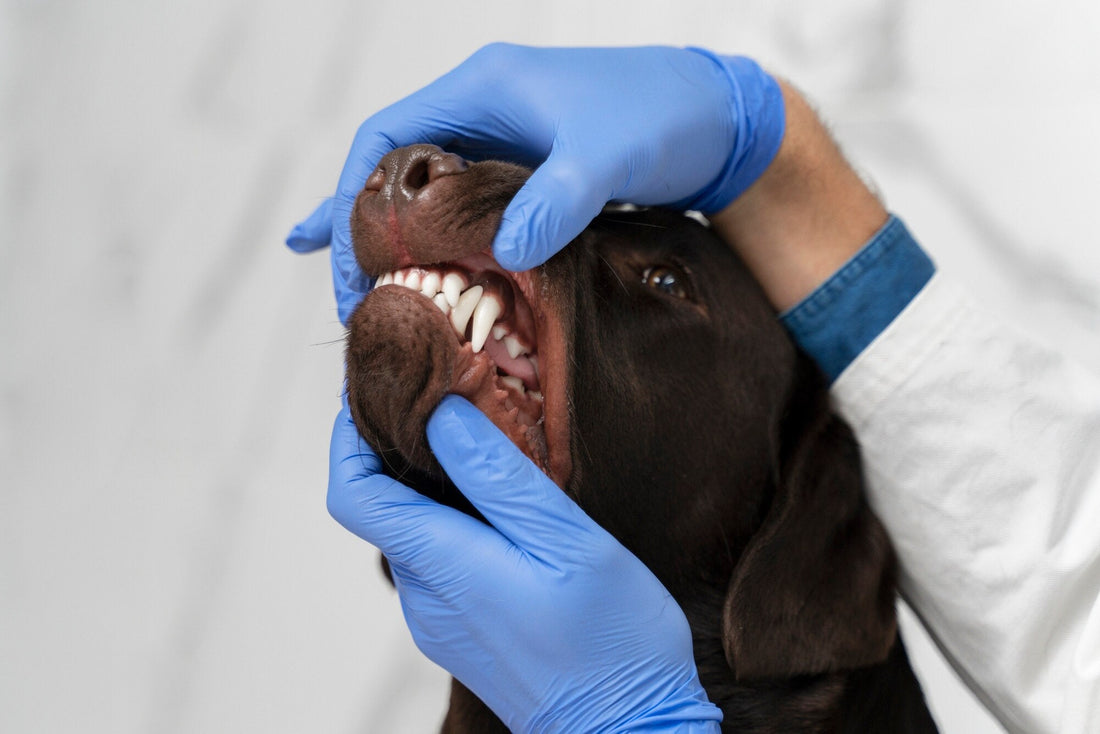
The Silent Threat: Why 80% of Dogs Have Dental Disease by Age 3
Did you know that by the age of three, approximately 80% of dogs show signs of dental disease? This alarming statistic often surprises even the most dedicated pet parents. Dental disease isn't just about bad breath—it's a serious health concern that can significantly impact your dog's quality of life and longevity.
The progression of dental disease begins subtly. It starts with plaque, a sticky film containing millions of bacteria that adheres to your dog's teeth after eating. Within 24-48 hours, if not removed, this plaque mineralizes into tartar—a hard, yellow or brown substance that can't be brushed away. As tartar builds up, it pushes under the gumline, creating pockets where more bacteria thrive.
This bacterial invasion leads to gingivitis (inflammation of the gums), which is reversible at early stages. However, if left untreated, it progresses to periodontitis—irreversible damage to the supporting structures of the teeth. Advanced periodontitis can result in bone loss, loose teeth, painful abscesses, and eventually, tooth loss.
What's more concerning is that the bacteria don't stay confined to the mouth. They can enter the bloodstream through inflamed gums, potentially affecting the heart, liver, and kidneys. Studies have shown links between periodontal disease and heart conditions, making dental care not just about comfort but about whole-body health.
Signs that your dog might be developing dental issues include:
- Bad breath that goes beyond normal "dog breath"
- Yellow or brown discoloration on the teeth
- Red, swollen, or bleeding gums
- Reluctance to eat, particularly hard foods
- Pawing at the mouth or face
- Excessive drooling
- Visible tartar along the gumline
Prevention is always better—and less expensive—than treatment. A comprehensive dental care routine should include:
- Regular veterinary check-ups with dental examinations
- Home tooth brushing (ideally daily, using dog-specific toothpaste)
- Dental-specific foods or treats
- Appropriate chew toys that help remove plaque
TailBlaze Chipots Dental treats are formulated specifically to address dental health proactively. Their unique texture helps scrape away plaque before it hardens into tartar, while the natural ingredients provide gentle cleaning without harsh abrasives. The organic chicken and sweet potato formula ensures your dog actually wants to eat them—because dental treats only work when they're eaten regularly!
By incorporating Chipots Dental treats into your dog's daily routine, you're taking a significant step toward preventing dental disease and potentially adding years to your pet's life. Remember, dental care isn't a luxury—it's an essential part of responsible pet parenting that pays dividends in your dog's health, comfort, and longevity.
Start your dog's dental care journey today with TailBlaze Chipots Dental treats—because every tail deserves to blaze with health and happiness for as long as possible.
Beyond Fresh Breath: 5 Surprising Ways Dental Health Affects Your Dog's Longevity
When most pet parents think about dental care for their dogs, fresh breath is often the primary motivation. While nobody enjoys doggy halitosis, the benefits of good oral health extend far beyond pleasant kisses. In fact, proper dental care can significantly impact your dog's overall health and lifespan in ways many pet parents never realize.
Here are five surprising ways dental health affects your dog's longevity:
1. Heart Health Protection
The connection between oral health and heart disease isn't limited to humans. Dogs with periodontal disease are at higher risk for developing heart conditions. The bacteria from infected gums can enter the bloodstream, attaching to the arteries around the heart and causing inflammation. This inflammation can lead to endocarditis (infection of the heart's lining) and potentially contribute to heart valve problems and heart disease.
Studies have shown that dogs with moderate to severe periodontal disease have a higher incidence of cardiovascular issues. By maintaining your dog's dental health, you're actively protecting their heart.
2. Kidney and Liver Function
Your dog's kidneys and liver serve as filtration systems for their body. When bacteria from dental disease enter the bloodstream, these vital organs must work overtime to filter out the toxins. Over time, this additional strain can compromise kidney and liver function, potentially leading to organ damage or disease.
Research has found correlations between advanced dental disease and changes in kidney values on blood work. Proper dental care reduces the bacterial load these organs must process, helping them function optimally throughout your dog's life.
3. Diabetes Management
The relationship between dental disease and diabetes works both ways. Dogs with diabetes are more susceptible to dental problems, and conversely, dental infections can make diabetes more difficult to control by affecting insulin resistance and blood sugar levels.
For diabetic dogs, meticulous dental care is even more critical. Even for non-diabetic dogs, maintaining oral health reduces one risk factor for metabolic issues.
4. Pain Prevention and Quality of Life
Dental pain in dogs often goes undetected because our canine companions are masters at hiding discomfort. Many dogs will continue eating despite significant dental pain. This chronic pain can lead to behavioral changes, decreased activity, and reduced quality of life.
Dogs with painful mouths may become less interactive, play less, and experience sleep disruptions. By preventing dental disease, you're ensuring your dog remains comfortable, active, and engaged—all factors that contribute to a longer, happier life.
5. Systemic Inflammation Reduction
Perhaps the most overlooked impact of dental disease is its contribution to systemic inflammation. Chronic inflammation throughout the body is linked to numerous age-related conditions and generally accelerated aging. Dental disease creates a constant inflammatory state that can affect tissues and organs far from the mouth.
By controlling this source of inflammation, you're potentially slowing the aging process and extending your dog's healthy years.
TailBlaze Chipots Dental treats are formulated with these connections in mind. Beyond just cleaning teeth, they contain ingredients that support overall health, including antioxidants and natural anti-inflammatory compounds. Their dual-action approach helps remove plaque physically while supporting your dog's systemic health.
Make dental care a priority in your dog's wellness routine with daily Chipots Dental treats—because good oral health doesn't just mean fresh breath; it means more healthy years together.
The Ultimate Guide to At-Home Dog Dental Care: From Brushing to Treats
Creating an effective at-home dental care routine for your dog doesn't have to be complicated or time-consuming. With the right approach and tools, you can significantly improve your dog's oral health and potentially add years to their life. Here's your comprehensive guide to keeping those canine teeth clean and healthy between veterinary visits.
Start with the Gold Standard: Brushing
Tooth brushing remains the single most effective method for removing plaque before it hardens into tartar. For optimal results:
- Use a dog-specific toothpaste (never human toothpaste, which contains xylitol that's toxic to dogs)
- Choose an appropriately sized toothbrush or finger brush
- Begin slowly, letting your dog get used to the taste of toothpaste first
- Use gentle, circular motions focusing on the gumline
- Aim for daily brushing, but even 2-3 times weekly provides benefits
- Make it positive with praise and perhaps a dental treat afterward
Dental Treats: The Convenient Complement
When selected properly, dental treats like TailBlaze Chipots Dental provide significant benefits, especially for dogs resistant to brushing. The ideal dental treat should:
- Have a texture that allows teeth to sink in slightly, creating a scrubbing action
- Be firm enough to provide resistance but not so hard it risks tooth fracture
- Contain ingredients that support dental health (avoid excessive carbohydrates that feed bacteria)
- Be appropriately sized for your dog to prevent choking hazards
Chipots Dental treats are specifically formulated with a ridged texture to maximize contact with tooth surfaces while the natural ingredients help fight plaque formation chemically. They're the perfect daily supplement to your dental care routine.
Water Additives: The Invisible Helper
Dental water additives can help reduce bacteria in your dog's mouth throughout the day. Look for products that:
- Are tasteless and odorless to avoid deterring drinking
- Contain enzymes that break down plaque
- Are alcohol-free and contain no artificial colors
Chew Toys: The Recreational Cleaners
The right chew toys can help clean teeth while satisfying your dog's natural urge to chew:
- Rubber toys with ridges or nubs massage gums and scrape teeth
- Rope toys act like dental floss when chewed
- Avoid extremely hard toys that could fracture teeth
- Replace toys when they become worn or damaged
Diet Considerations: The Foundation
Your dog's regular diet plays a role in dental health:
- Consider dental-specific kibble formulated to reduce plaque
- Avoid sticky, carbohydrate-rich foods that cling to teeth
- Raw meaty bones (under supervision) provide natural cleaning
- Crunchy vegetables like carrots can help scrape teeth naturally
- Creating Your Dog's Dental Routine
The most effective approach combines multiple methods:
- Morning: Quick brush session followed by a Chipots Dental treat
- Throughout day: Access to appropriate chew toys
- Evening: Another Chipots treat if brushing isn't possible every day
- Weekly: Check mouth for any signs of issues like redness, swelling, or broken teeth
When to Seek Professional Care
Even with excellent home care, professional dental assessments are essential. Contact your veterinarian if you notice:
- Persistent bad breath
- Bleeding or receding gums
- Discolored, loose, or missing teeth
- Difficulty eating or decreased appetite
- Excessive drooling or pawing at the mouth
By implementing this comprehensive approach to dental care—with TailBlaze Chipots Dental treats as a cornerstone—you're investing in your dog's overall health and longevity. Start your dental care routine today, because prevention is always easier and less expensive than treatment.


